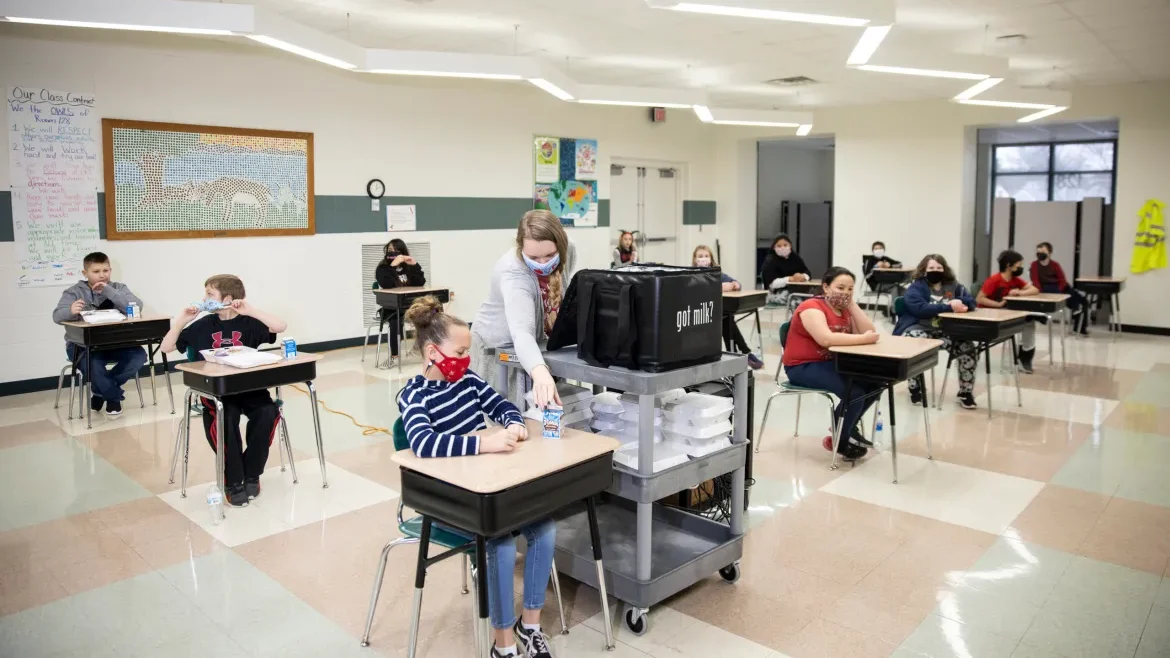
This article was published in the Cornell Daily Sun.
National STEM Day on Nov. 8 is recognized by U.S. government departments, mainstream news outlets and Cornell students as an occasion that honors the importance of early STEM education in inspiring future scientists.
For Kaleigh Remick ’22 and Emma Hammes ’22, officers of Encouraging Young Engineers and Scientists at Cornell, celebrating National STEM Day reinvigorates a mission to support STEM education for students at an early age.
“STEM is such an amazing, diverse field, but if children aren’t taught at a young age to embrace STEM, it can be really challenging to encourage it later in life,” Remick said.
EYES is a student-led outreach organization that runs out of the Einhorn Center for Community Engagement and offers Cornell students the opportunity to lead STEM demonstrations, activities and games for K-12 students in the Ithaca area. The organization works to encourage young students to explore engineering and science as possible career paths.
According to Remick, the president of EYES, unfamiliar topics in STEM can seem daunting to young students as they move up through grade schools. However, as problems like climate change, resource distribution and health care demand urgent solutions, early STEM education remains important for encouraging the next generation of passionate scientists.
Remick and Hammes say that STEM education, no matter the difficulty, should begin in elementary school. Hammes, who is the head of lesson development at EYES, said children in elementary school are highly impressionable and likely to gain appreciation for basic science topics that may grow into interests as learning progresses.
“Elementary school children are capable of much more than we think,” Hammes said. “If you present them with a carefully explained lesson, they will learn and retain the information.”
While EYES also works with middle and high schoolers, early lessons in STEM for elementary schoolers can have ripple effects for students’ learning years down the line, according to Hammes.
Remick and Hammes traced their own passions for science careers back to their early introduction to STEM education. For a young Remick, a single conversation with her father about an unbalanced distribution of clean water around the world turned her into an aspiring scientist hoping to work toward a world with clean drinking water for all.
“While I had very little direction other than a vague [definition of] ‘science,’ I have since fine-tuned my career aspirations and am now pursuing a Ph.D. in microbiology,” Remick said.
Listening to her father’s research presentations kicked off Hammes’s career as a scientist, cultivating science exploration and curiosity. This early curiosity, Hammes believes, can be critical for promoting interest in science later in life.
“At this age, [children are] still really easily excited and can receive new material with a curiosity that’s often dwindling by the time they reach later grades,” Hammes said.
To foster curiosity for children in the Ithaca community, Hammes and Remick prepare lessons that involve engaging experiments and incentives. EYES members have now returned to their pre-pandemic operations, in which they traveled to schools like Beverly J. Martin Elementary and Cayuga Heights Elementary once a week, engaging with classes or afterschool programs.
“I really love doing our lava lamp lesson, where each of the kids get to make their own pseudo-lava lamp,” Hammes said. “It has a really cool result but also covers a lot of complex concepts [like] density and solubility in a decent amount of detail.”
In semesters before the pandemic, the organization has also taught lessons on ice cream making, chemical reactions and rocks and minerals.
EYES, however, faced setbacks at the start of the COVID-19 pandemic that prompted curriculum adjustments. According to Remick, EYES members found it challenging to keep students cooperating and engaged with their adapted lesson plans.
And it is not only EYES that has encountered difficulty with virtual learning. Children all around the world have dealt with lack of structure and elevated stress levels as a result of online classes.
For this reason, EYES adapted its lesson programming over the past year to maximize engagement over Zoom, weighing factors including children’s attention spans and resources at home.
On this National STEM Day, Remick and Hammes said they were grateful to be restarting in-person school visits this semester, teaching small groups of students with hands-on demonstrations. The two organization leaders said that this semester, their club has seen high engagement from both their new members and students, driving their excitement for the in-person future of the organization and STEM education in Ithaca schools.“
This semester has actually been quite successful,” Hammes said. “We also have a good amount of new members who have been doing a great job with the kids and seem really excited to be a part of EYES. Hopefully our numbers will only continue to grow and we can expand to even more schools.”


